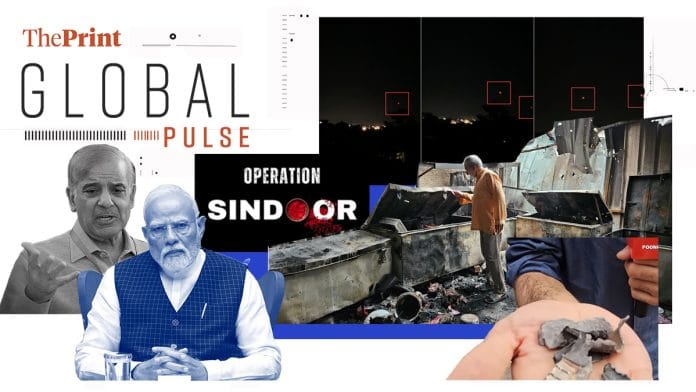New Delhi: As the Indian armed forces spent Thursday night intercepting Pakistani missiles, India’s neighbouring nation has issued a denial, reports the BBC.
“We deny it, we have not mounted anything so far,” Pakistan’s Defence Minister Khawaja Asif tells BBC. “We will not strike and then deny.”
Both countries appear to be upping the ante, with India striking Pakistan’s air defence system—a mere 50 kilometres away from Lahore. Intensification of the conflict seems to be underway despite denials on both sides, report Mujib Mashal and Salman Masood in The New York Times.
“India and Pakistan both continued to claim that they were not seeking an escalation in their military clash. But the reality on the ground indicated that the two nuclear-armed countries were not yet ready to take the offramps from their boiling tensions that had appeared to take shape a day before,” the report reads.
A conversation by Washington Post columnists Damir Marusic, Max Boot and Rana Ayyub looks at various angles of the latest India-Pakistan standoff. In part, they present a reassuring take.
“Leaders in both Islamabad and New Delhi are nationalistic, but they are not suicidal. Neither side wants to spark a nuclear war. Since 1945, nuclear weapons have been a force for strategic stability; that’s a big reason why World War III never broke out between the United States and the USSR, and why India and Pakistan have not fought a major war since both countries acquired nuclear weapons,” says Max Boot, adding that he is only moderately worried about further escalation.
Since 1998, when both powers began testing nuclear weapons, they have demonstrated restraint––to the point where Pakistan’s finance minister describes going nuclear as “the great equaliser” which protects Pakistan, says a report in the Financial Times.
“But almost three decades of managed—almost choreographed—conflicts may have lulled both sides into believing that escalation can always be controlled. The increasingly sectarian tensions fuelling the geopolitical rivalry between the Islamic republic and Hindu-dominated India have also put pressure on their military leaderships to ignore precedent and test the limits when calibrating responses,” write Charles Clover, Andres Schipani, Humza Jilani and Krishn Kaushik for FT.
Meanwhile, India’s quest to become a global superpower is in jeopardy due to its longstanding conflict with Pakistan, reports Dan Strumpf for Bloomberg. As tensions escalate, on the economic standpoint at least, India has much more to lose. Its GDP is eight times that of Pakistan’s.
“India has a lot at stake if any escalation on the border with Pakistan goes out of control and leads to a broader conflict,” Abhishek Gupta, an economist with Bloomberg Economics, says in the report. “That may dent investors’ confidence in India as a safe haven from Trump’s tariffs, and capacity constraints at the political level may shift the focus away from the economy.”
The Wall Street Journal has also reported Thursday evening’s clashes, and India’s drone strikes across Pakistan. “It appears India has, apparently, lost the plot and rather than going on a path of rationality is further escalating in a highly charged environment to satisfy the hubristic mindset of its government,” Pakistan army spokesperson Ahmed Sharif Chaudhry tells WSJ.
(Edited by Mannat Chugh)






